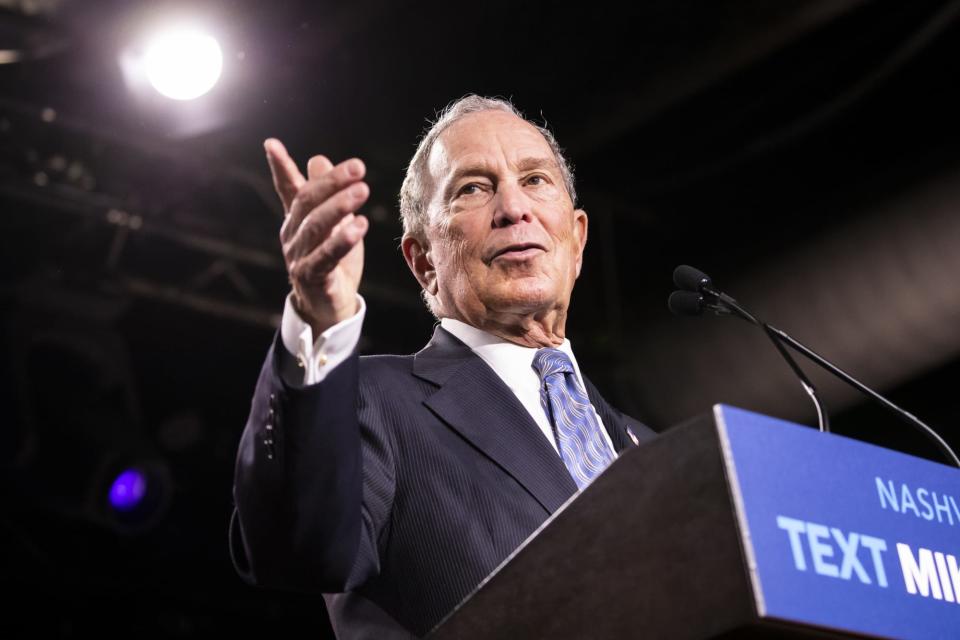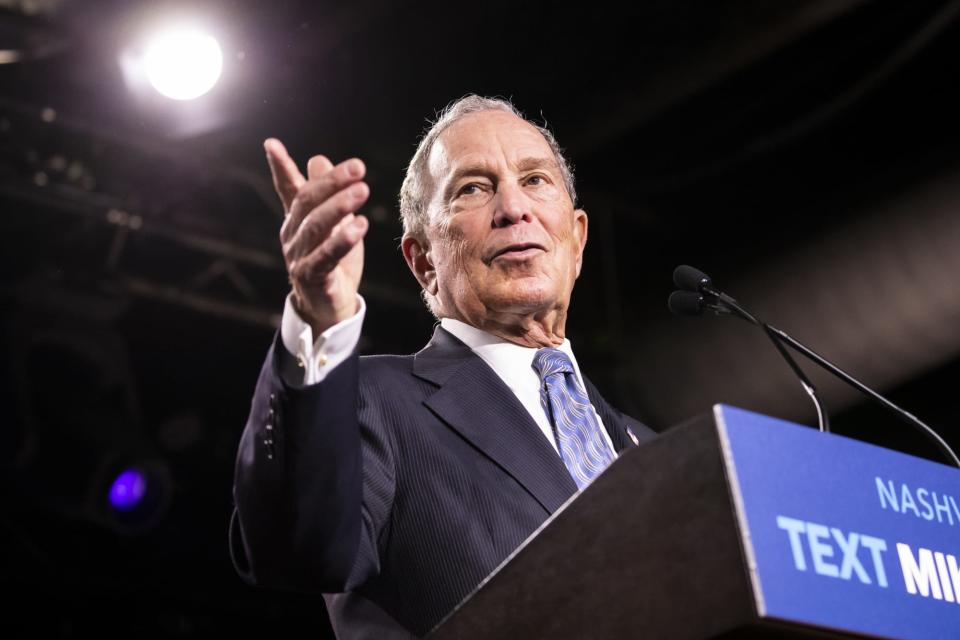Mike Bloomberg is paying Instagram influencers to hype his campaign
Meme-in-chief.
Before this week, social media networks like Instagram were one of the few places where you could escape the advertising reach of billionaire presidential candidate Mike Bloomberg. Not so anymore. According to The New York Times, Bloomberg is working with a company called Meme 2020 to try and reach out to young voters. But rather than convincing them to vote for him based on his policies, Bloomberg is instead attempting to secure votes by going viral.
The main part of the campaign has seen popular meme accounts like @grapejuiceboys and @tank.sinatra post fake direct messages from Bloomberg. In one of the DMs, for example, Bloomberg says he has learned how to use Photoshop before sharing a photo of Bernie Sanders that has been a wellspring of memes recently.
Most people haven't responded enthusiastically to the ads, even if they're properly disclosed. "Omg such an ironic and cool way to sell out," wrote Jon Elkin, one of the people to comment on the post -- and that's just the most PG response.
The campaign is the brainchild of Mick Purzycki, the lead strategist of Meme 2020 and the CEO of Jerry Media. If that name sounds familiar, it's because Jerry Media was one of the companies that helped hype the infamous Fyre Festival.
Bloomberg's social campaign extends beyond working with Meme 2020. Last week, the Daily Beast found the Bloomberg campaign contracted a company called Tribe to pay micro-influencers -- accounts with more than 1,000 followers but fewer than 100,000 -- $150 per post to create original content "that tells us why Mike Bloomberg is the electable candidate who can rise above the fray, work across the aisle so all Americans feel heard and respected." The way the Bloomberg campaign sees it, memes will be essential if Democrats are going to have any chance to win against Donald Trump in the presidential election later this year.
"Mike Bloomberg 2020 has teamed up with social creators to collaborate with the campaign, including the meme world," Sabrina Singh, a senior national spokeswoman for the Bloomberg campaign, told The New York Times. "While a meme strategy may be new to presidential politics, we're betting it will be an effective component to reach people where they are and compete with President Trump's powerful digital operation."
While there's something to be said about how effectively President Trump uses Twitter and other social media platforms to engage his base, it's hard to say if Bloomberg's memes will energize young voters the same way. What's clear, however, is that this is one of the first times a political candidate has tried to use influencers to secure potential votes and is likely a sign of things to come.


